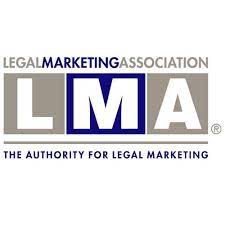Law Firm Web Site Valuation: What is your Web Site, Domain, SEO and Content worth when your Law Firm Breaks Up?
So you decided to form a new law firm. The future is bright. You have funding in place, you have a client roster that will follow you, and you are teaming up with your old law school friends. Nothing can go wrong and you will be practicing forever together.
As attorneys, we all know there should be a partnership agreement in place. That is basic stuff. It will detail fun stuff such as voting rights, salaries, profits, and who gets their name in big lights. It will also detail not so fun stuff, such as losses, initial capital, termination, and liquidation of the firm.
However, there should also be a clause or addendum to any partnership agreement that specifically outlines ownership of the web site and internet marketing presence. Some of the big areas that need to be considered are:
- Domains
- Content
- Web Site Design & Identity
- Blog
Each will be reviewed in more detail below with an analysis of the ownership, key consideration, value of each item, and of course our recommendations if we were representing just you (and not your silly partner who just left you).
1. Domain
A. ” Domain:” Ownership
Who owns the domain?” Unlike clients, office furniture, or staff, upon termination you cannot split up a domain. The domain has a lot of value, so don’t just drop the domain and not renew.
Too many times have I seen a domain abandoned, only to have some company buy the domain and put ads online (thereby making a profit off your previous domain). If another company wants to buy your domain, it must have value. So make sure to renew your domain.
A single person/firm will own the domain, so who is it going to be?” Decide that from the outset. Decide if the domain name will redirect to someone’s new firm, or if you will just put up a placeholder directing users to both new firms. Finally, decide what to do with email forwarders, as someone will have to support that ongoing if you wish to receive any emails to the old domain.
B. ” Domain:” Key Consideration
Search Engine Optimization is a huge consideration for the domain, if not the most important consideration. It’s easy to let the domain lapse. A better choice is to redirect the domain to one of the new sites that you presumably will be creating for a newly formed firm (or at least passing to your new firm if they have an existing site).
If your site is highly ranked by search engines, it’s probably due to the fact that you have hundreds, if not thousands, of inbound links to your web site’s domain. Those links are the currency of the web and without them your site may not rank high.
If you want to pass over any value to the next site you develop, you must do a proper 301 redirect. This is a permanent redirect that tells search engines to pass over all previous value to your new site. Of course, it can only be passed to one site, so choose wisely who gets the domain.
C. ” Domain: Value
What is the fair market value of the domain?” Almost always it’s more than the $10 to $30 you paid for the yearly registration. We have seen domains valued from a few hundred dollars to tens of thousands of dollars (I even worked on a case where the domain was valued at $500,000). ” ” Most will probably be worth a few thousand dollars. You can always get an expert opinion if needed about the value of the domain. Factor in the backlinks, branding, and notoriety to determine an overall value.
D. ” Domain: Recommendations
If your domain is highly ranked in Google, make sure you keep it at all costs. With all your inbound links and backlinks, your domain is worth a minimum of several thousand dollars and perhaps more. With certain practice areas, new domains for a new site can take months, if not years, to crack the Google index, so your new marketing plan for your firm should consider that. A great way to skip that sandbox is through use of the old domain and a 301 redirect to your new site (so long as it has similar focus).
2. Web Site Content
Content: Ownership
Who owns the content?” Traditionally, without a specific agreement in place, the actual author of the content owns the copyright. So if one attorney prepared everything, and there is no work-for-hire agreement in place, he or she may actually own the content outright. Of course, a partnership agreement or employment agreement will solve any questions.
Content: Big Consideration
The value of content is four fold:” (1) time; (2) money; (3) Search Engine Optimization (SEO); and (4) branding. As to time, it usually takes anywhere from 1 to 2 hours to write a page of custom content. So what is your time worth, if you plan on writing new content yourself?” If you hire someone else, copy writers usually cost anywhere from $75 to $200 per page of content. What is your budget for new content on your new site?” For SEO, content is king. The better your content, the more in-depth on a subject, the higher you will rank. Do you have enough unique content to start a new site?” A unique brand and message written throughout your copy may be worth a lot more. Of course, that brand may be lost because of the firm split.
Finally, please note that for search rankings, content MUST BE UNIQUE. If you simply have each firm take the exact same content, both your new sites will be penalized. You must decide who gets the original content and then force the other partner to create unique content.
Content: Value
Value of content can traditionally be pegged anywhere from $50 per page to about $200 per page. So if you have a 20-page web site (home page, 5 bios, 10 practice areas, contact page, resources, about us, and another general page) it might be worth anywhere from $1,000 to $4,000. The better the writer, the more it will cost.
Content: Recommendation
Content may not be as valuable as the domain. It depends on the situation. Unique content that no one else has is worth a lot. General bios pages, descriptions, and so forth are not worth as much. They may have to be re-written anyway to set up a new brand for the new firms (or won’t be used at all if you are joining another firm).
3. Web Site Design
Design: Ownership
Again, who owns the actual design of the site?” If it’s a good design, it can be worth a lot. A good design will lower your bounce rate, thereby keeping people on your site longer. It will set the tone of your firm and appeal to your audience. Conversely a bad design will cause people to leave and run away. Ack!
Design: Big Consideration – Theme
Figure out who owns the overall design. Unlike content, a design can actually be shared from a technical standpoint. Search engines do not care about the design, just the text. So if you both like the layout and want to share it on the new sites, so be it. From a branding standpoint, both your new firms should be branded to fit your overall new core values of the firm, but that is another article.
Design: Value
Designs can be valued pretty easily. Templates can cost less than a thousand dollars. Custom designs start at $5,000 and go to typically $50,000 (depending on the design firm, their experience, and what they are doing). Make sure your partnership agreement spells out who owns the design, as it could be up to 1/3 to 1/2 of your total web design budget.
Design: ” Recommendations
Funny a designer would say this, but in terms of a domain and content, the design is the least of my worries in transferring a site. Focus on the content and domain. Of course this is because designs usually are outdated within a few years and designs should be created to fit new firms values. If you need a site right away, like the design, then definitely buy the site outright (including domain, copy and design). If your design stinks, then don’t.
4. Blog
Blog: Ownership
A special subset of this article is blogs. Who owns a firm blog?” The firm? ” The author? Is it just sponsored by the firm?” Is it part of the firm intellectual property?
A lot of blogs are written and maintained by a single attorney. If it’s a one-person show on the blog and that person leaves, then often the blog remains with that individual.
However, there is a good trend that practice teams all contribute to a blog. If one team member leaves and there are multiple other contributors, usually the blog stays with the firm. Most likely it will be spelled out in your employment agreement. However, perhaps each person gets the posts he or she has personally written.
In either case, this is where a specific agreement should be in place as to the ownership of the copy and even the design.
Blog: ” Big Consideration
As always, the big consideration really comes down to money. If the firm sponsored the blog from the outset, credited the attorney for his or her time in some manner, then the firm should own the blog. This is especially true if there is a contract in place that states all IP is assigned to the firm. If, however, this was an independent effort on the attorney’s behalf to build the blog, then the blog should go with that attorney.
The interesting part is that no matter what, the attorney with the passion to blog will probably start anew anyway. He or she will recognize the value in the blog, even if the attorney has to restart and reload. The firm may own the old blog, but if they do not keep it updated, it will become a bit stale and lose its effect.
Blog:” Value
Blogs can run anywhere from free to create, to $5,000 or more. The real value in the blog comes from its posts, comments, and overall following. While the design value is easy to measure, it’s a bit harder to measure a year (or more) of work posting and generating a following. Perhaps you can include in the value of the blog the amount of new business it generated, or the amount of community recognition it created — ” but that is also hard to measure quantitatively.
Blog: Recommendations
Before anyone in the firm starts blogging, spell out exactly who owns the blog content, design, and even the domain.
Conclusion
Simple:” Always figure out who owns the domain, web site, and content. Also, before blogging, figure out a succession plan and who owns that specific posts, comments, and blog following.
Thanks.







